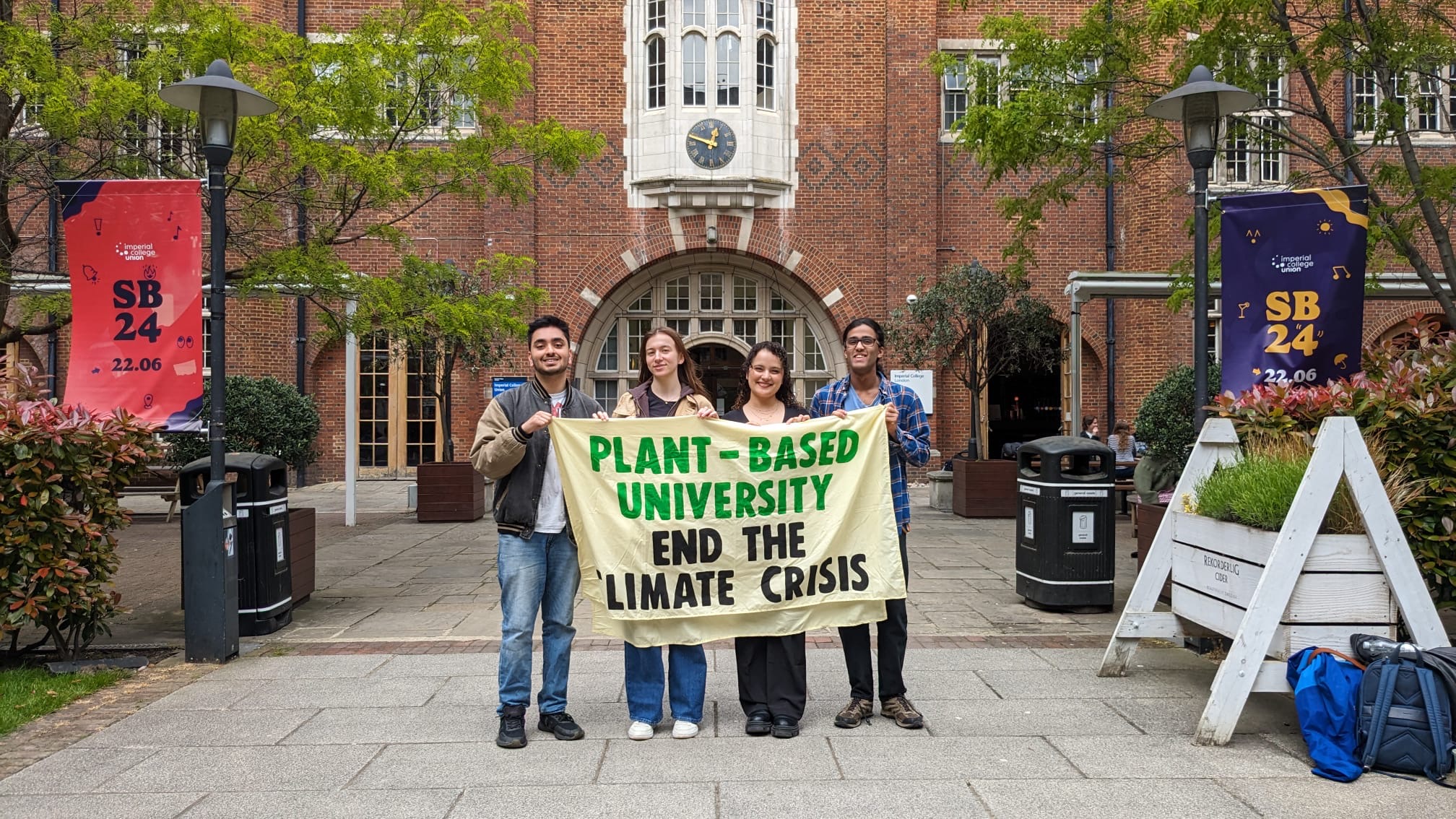Plant-based Universities motion loses 11-13 in Union Council
30th April saw the Union Council’s latest meeting. Only one motion was presented - “Just and sustainable plant-based catering at Student Union outlets to tackle the climate crisis” by grassroots campaigners from Plant-based Universities (PBU). The vote was close, with the result being 11 for, 13 against, and 2 abstentions.
The motion would commit the Student Union to supporting and lobbying for plant-based catering across Imperial. It also asked the Union to transition catering to 100% plant-based, although it did not set a timeline. PBU Imperial hopes that this would encourage people to eat more plant-based food. The campaigners accepted the two amendments proposed during the discussion, which helped place fewer restrictions on the process of the transition for the Union and encourage locally sourced food.
Well over a dozen questions were taken on the motion and the campaigners plan to respond to each point ahead of submitting a revised motion in June. A threshold of 50% + 1 is needed to accept motions (with the chair breaking ties), so the campaigners need to flip one councillor by the meeting at the end of term.
Many people eat what they think tastes best without considering the environmental or ethical consequences. This was reflected by councillors who wanted to ensure that meat-eating students would like the plant-based options as much as meat. They asked for more evidence showing enthusiasm from students for plant-based options and more evidence that the options could be healthy and tasty. Councillors also had concerns about land use, prices, and whether they could represent students on the motion. If the motion is passed, s tudents wishing to eat meat on campus could still bring in their own food - like many people with allergies and dietary restrictions have to now.
“Losing by only two votes shows that what we’re asking for isn’t a wildly unpopular idea, so I’m feeling positive,” said Hollie Meyers, lead campaigner of Plant-Based Universities Imperial. “During the meeting, I welcomed concerns over the logistics about the move to 100% plant-based, but the relentless comments about whether plant-based diets are actually healthy annoyed me. I want to emphasise that we’re asking for systemic over individual change, so I’m hoping that people’s own barriers to eating plant-based diets are left aside and to agree that a radical change in our university catering system is needed to save our dying planet.”

The union almost committed to plant-based catering, but why is it necessary?
Global warming requires urgent action. According to a Nature paper last month, we are likely already committed to a 19% income reduction worldwide by 2050. This is alongside climate change potentially displacing billions and being a threat multiplier. Food systems make up a between one-quarter and one-third of global emissions. Continuing to eat as usual would use up our entire carbon budget for limiting global warming to 1.5°C above pre-industrial temperatures, and 75% of our budget for 2°C, alone.
Plant-based food wouldn’t just help us decarbonise. It would free up land currently used to grow crops to feed animals - the same amount of land as China, Europe, and the United States combined. The land we would no longer use could be rewilded to help address the man-made mass extinction, and the extra space would help us adopt more sustainable farming practices which can maintain output for decades to come. A plant-based diet is healthy and costs about 20% less than the average.
Transitioning to plant-forward diets is not about being perfect or strict: it is about eating more plants and less meat and dairy. Scientists know this is a social transition we need to make, as the Intergovernmental Panel on Climate Change report and the UK Government’s National Food Strategy both mention it. To quote Michael Pollan, “Eat food. Not too much. Mostly plants.”
Oscar Mitcham is a campaigner with Plant-based Universities Imperial.








